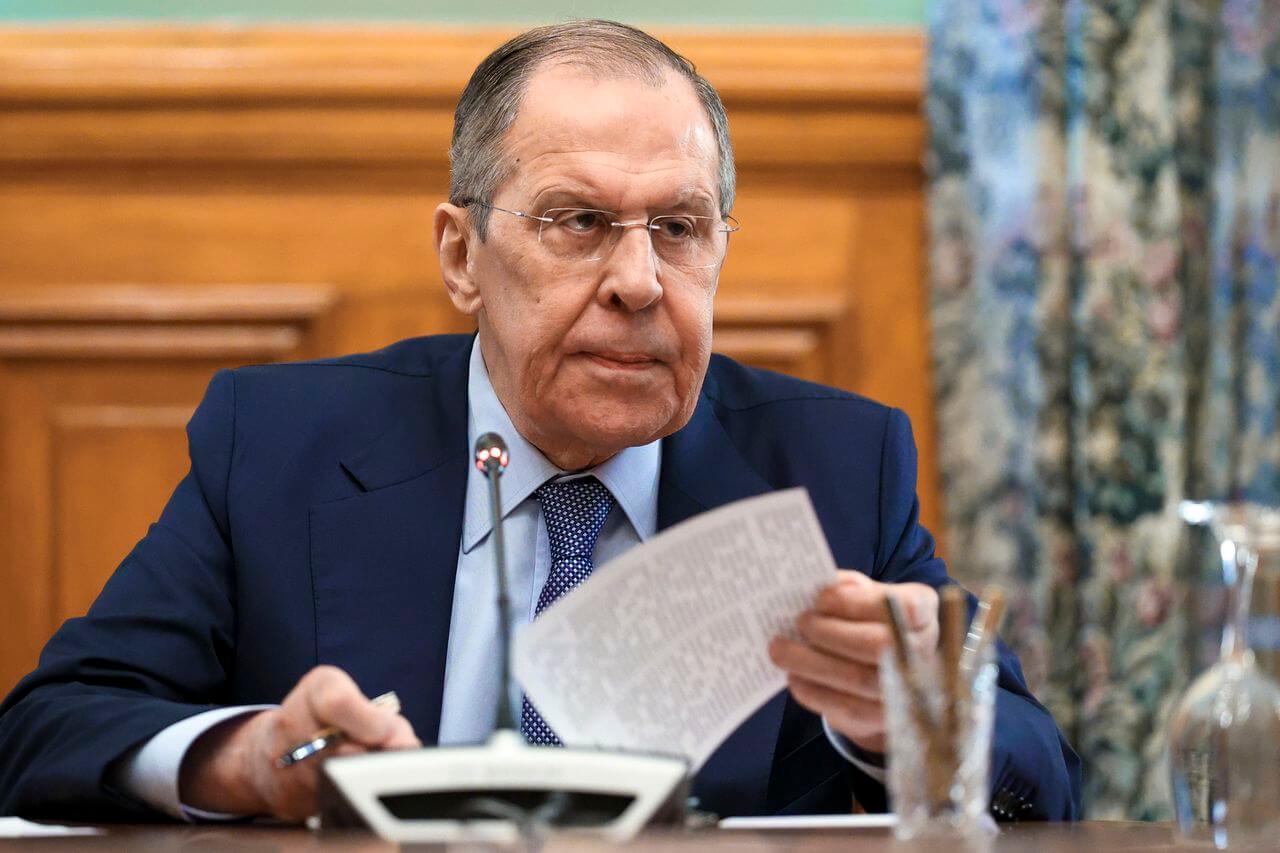On Wednesday, negotiators from Russia and Ukraine continued their weeks-long deliberations as both sides indicated that peace talks had entered a critical phase, wherein they are ready to reach a compromise.
During an interview with Russia’s RBC News, Foreign Minister Sergey Lavrov said that despite the extraordinary circumstances under which Russia and Ukraine were conducting the peace talks, there is “some hope of reaching a compromise.” Lavrov hinted that the talks had entered a serious stage as officials on both sides were discussing Ukraine’s neutral status and security guarantees. Talking about the status of the talks, Lavrov said the negotiators are close to signing an agreement, noting that they are currently going over “absolutely specific formulations.”
‼️This is all that remains of the Drama Theater in #Mariupol
— NEXTA (@nexta_tv) March 16, 2022
According to local media, up to 1,000 people could have been inside the building. All of them are now under the rubble of the building. The exact number of casualties is still unknown. pic.twitter.com/4L3D8lt39E
Separately, Russia’s lead negotiator and Presidential aide, Vladimir Medinsky, remarked that the talks were “hard and slow-going,” adding that authorities on both sides had a difficult task of finding common ground in a highly complex issue.
Medinsky also noted that one of the proposals being discussed calls on Kyiv to adopt a demilitarised and neutral position, similar to that of Austria and Sweden, wherein Kyiv will not join the North Atlantic Treaty Organization (NATO) but will maintain an independent armed force. Medinsky pointed out that these discussions are taking place at the level of Russian and Ukrainian defence ministries.
However, The Moscow Times reported that Ukraine “immediately” dismissed the proposal that charts Ukraine’s future based on the Austrian-Swedish neutrality model. Ukraine’s lead negotiator, Mikhailo Podolyak, stressed that since Ukraine is directly at war with Russia, “the model can only be ‘Ukrainian’ and only on legally verified security guarantees.”
Our position at the negotiations is quite specific - legally verified security guarantees; ceasefire; withdrawal of Russian troops. This is possible only with a direct dialogue between the heads of Ukraine and the Russian Federation. Details are in an interview with the @NewsHour pic.twitter.com/TlPUl3XfGK
— Михайло Подоляк (@Podolyak_M) March 16, 2022
In a tweet, Podolyak said that the “very difficult and viscous” negotiation process with the Russians had ended for the day with both sides expected to pick up the next day. In a hint of optimism, Podolyak emphasised that there is “room for compromise,” despite the “fundamental contradiction” between the two sides.
Although Ukraine dismissed the Austria-Sweden model proposal, Zelensky has previously indicated that he has scrapped his ambitions of joining the North Atlantic Treaty Organization (NATO) and also suggested that he is amenable to a compromise over Donetsk and Luhansk.
We'll continue tomorrow. A very difficult and viscous negotiation process. There are fundamental contradictions. But there is certainly room for compromise. During the break, work in subgroups will be continued...
— Михайло Подоляк (@Podolyak_M) March 15, 2022
Away from the talks, Ukrainian officials have criticised Russia for bombing a theatre that housed “several hundred” people and refugees in the southern port city of Mariupol. According to the US, Russian naval forces shelled several towns outside Odessa, a key port city on the Black Sea. Moreover, Ukraine’s Deputy Prime Minister, Iryna Vereshchuk, claimed that authorities were not able to establish humanitarian corridors from Kyiv and Kharkiv because Russian forces kept firing at them.
In another parallel development, President Zelensky addressed the United States Congress, wherein he urged the American lawmakers to “close the sky,” referring to his calls for the imposition of a no-fly zone. During an impassioned appeal, Zelensky urged the Biden administration to do more for Ukraine. In this context, the White House announced it would be sending an additional military package worth $800 million that includes 800 Stinger anti-aircraft systems, 100 grenade launchers, and other small artillery and drones. This brings the Biden administration’s total contribution to Ukraine during the ongoing war to about $2 billion.

